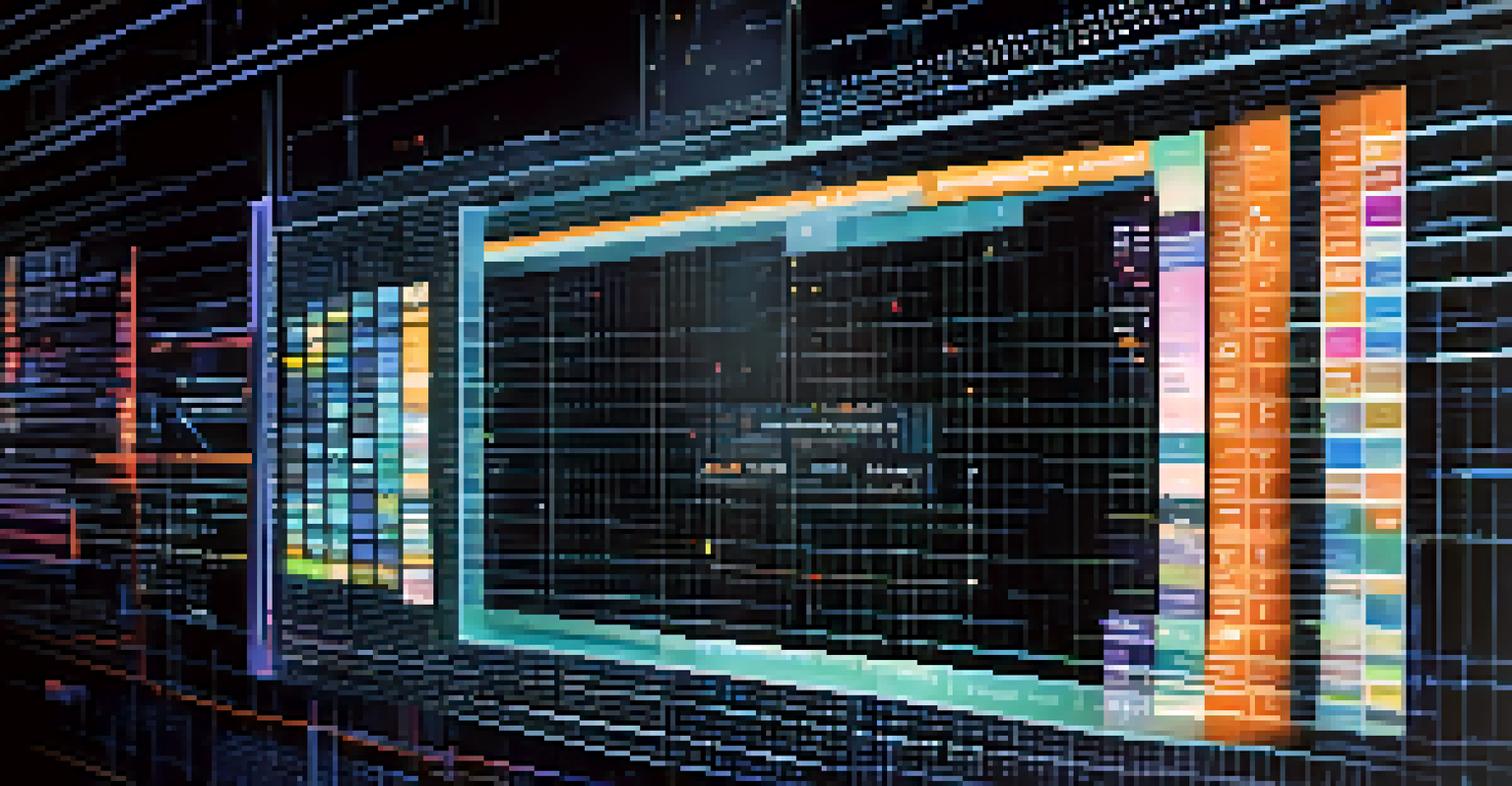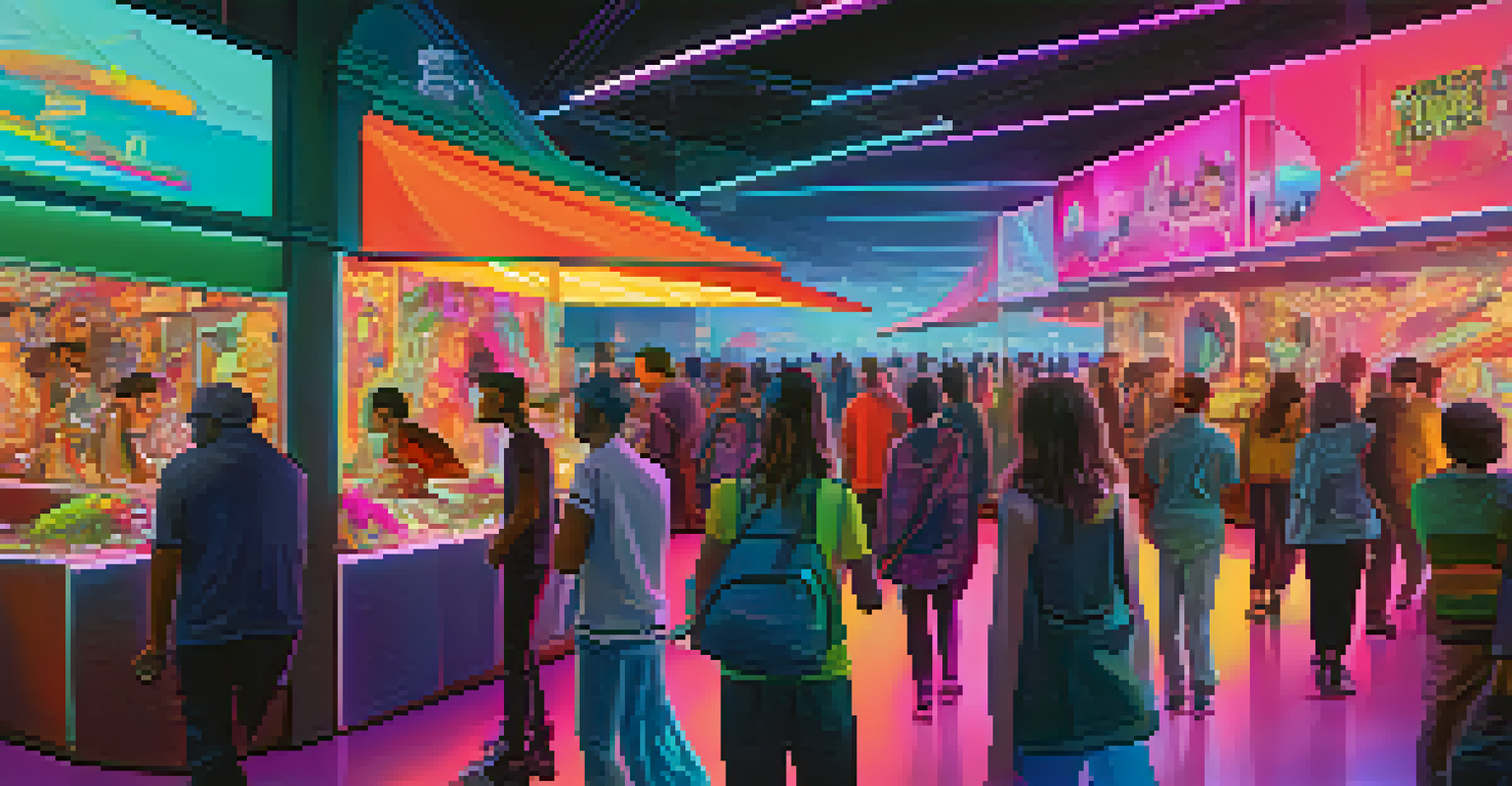Smart Contracts: Enforcing Digital Authenticity in NFTs

What Are Smart Contracts and NFTs?
Smart contracts are self-executing contracts with the terms directly written into code. They automate, verify, and enforce agreements without needing intermediaries, making transactions more efficient. On the other hand, NFTs, or non-fungible tokens, are unique digital assets that represent ownership of a specific item, often in the art, gaming, or music industries. Together, smart contracts and NFTs create a seamless way to establish ownership and authenticity in the digital realm.
Smart contracts are just like vending machines: they execute transactions automatically when the conditions are met.
Imagine buying a rare trading card; the card itself holds value because of its uniqueness and the trust in its authenticity. Now, think of NFTs like that card, but in a digital format. Smart contracts act as the trustworthy middleman, ensuring that when you buy an NFT, the ownership is recorded and verified on a blockchain, making it impossible to forge or duplicate. This synergy is key to the growing popularity of digital collectibles and assets.
In this way, smart contracts play a crucial role in the NFT ecosystem, ensuring that each transaction is transparent and secure. By leveraging blockchain technology, they provide a tamper-proof record of ownership, which is essential in a world where digital art and assets can easily be copied. This unique combination is helping to reshape how we perceive value and ownership in the digital age.
The Role of Blockchain in Smart Contracts
Blockchain technology is the backbone of smart contracts, providing a decentralized and transparent ledger for all transactions. This means that every transaction is recorded across a network of computers, making it virtually impossible to alter or delete. In the context of NFTs, this ensures that the history of ownership and authenticity is always accessible and verifiable by anyone, anywhere.

Think of blockchain like a public library where each book represents a transaction. Just as anyone can go to the library and check a book's history, anyone can view the blockchain to verify an NFT's ownership and authenticity. This transparency builds trust among buyers and sellers, encouraging more people to engage in the digital marketplace. It's this reliability that underpins the success of NFTs.
Smart Contracts Ensure Digital Trust
Smart contracts automate and verify transactions, providing a transparent and secure way to establish ownership and authenticity in the NFT market.
Moreover, blockchain's immutability ensures that once a smart contract is executed, it cannot be changed or tampered with. This feature is critical in preventing fraud and ensuring that the digital assets maintain their value over time. As more artists and creators enter the NFT space, the need for a secure and trustworthy system becomes increasingly vital, highlighting the importance of blockchain in this ecosystem.
How Smart Contracts Enforce Authenticity
Smart contracts enforce authenticity by embedding the unique attributes of an NFT directly into the contract's code. When an NFT is created, details such as the creator's identity, the asset's history, and ownership rights are all coded into the contract. This not only verifies the NFT's uniqueness but also helps prevent issues like plagiarism or unauthorized reproductions.
NFTs are not just a trend; they are a fundamental shift in how we think about ownership in the digital age.
Picture a certificate of authenticity that comes with a valuable piece of art. This certificate proves that the art is genuine and provides a history of its ownership. Similarly, smart contracts serve as the digital equivalent, ensuring that each NFT has a clear lineage. This added layer of security is what makes NFTs so appealing to collectors and investors alike.
Additionally, smart contracts can be programmed to include royalties for creators, ensuring they earn a percentage of future sales. This feature encourages artists to create and sell their work without fear of losing out on potential income. By automating these processes, smart contracts not only enforce authenticity but also create a fairer marketplace for artists and collectors.
Benefits of Smart Contracts for NFT Transactions
One of the most significant benefits of smart contracts in NFT transactions is their ability to automate processes, which speeds up the buying and selling of digital assets. Traditional methods of verifying ownership often involve lengthy paperwork and can require intermediaries, which can slow down transactions. Smart contracts eliminate this need, allowing for instant transfers of ownership once the conditions are met.
Imagine walking into a store, picking up an item, and walking out without waiting in line. That's the kind of efficiency smart contracts bring to NFT transactions. This seamless experience not only benefits the buyers but also encourages more creators to enter the digital market. With less friction in the process, the ecosystem becomes more vibrant and accessible.
Blockchain Enables Secure Ownership
Blockchain technology underpins smart contracts, creating a decentralized ledger that ensures the history of ownership and authenticity is easily verifiable.
Moreover, smart contracts reduce the risk of fraud, as they are based on blockchain technology, which is inherently secure. This peace of mind allows buyers to invest in NFTs without the constant worry of being scammed or receiving counterfeit items. As more people engage with NFTs, the reliability of smart contracts will continue to play a vital role in sustaining trust within the digital marketplace.
Challenges and Limitations of Smart Contracts
Despite their many advantages, smart contracts are not without challenges. One major limitation is the complexity of creating and deploying smart contracts, which often requires a certain level of technical knowledge. This can be a barrier for artists and creators who may not have the resources or expertise to navigate the technical aspects of blockchain technology.
Consider trying to assemble a complicated piece of furniture without a manual. You might have all the pieces, but without guidance, it can be frustrating and time-consuming. Similarly, the learning curve for smart contracts can deter potential users from fully embracing their benefits. This highlights the need for more user-friendly platforms that simplify the process of creating and managing smart contracts for NFTs.
Additionally, there are concerns about the environmental impact of blockchain technology due to the energy consumption associated with some consensus mechanisms. As the NFT market continues to grow, addressing these environmental issues will be crucial. Finding sustainable solutions will ensure that the benefits of smart contracts and NFTs can be enjoyed without compromising our planet's health.
Future of Smart Contracts in the NFT Ecosystem
The future of smart contracts in the NFT ecosystem looks promising, with increasing adoption across various industries. As more creators and businesses recognize the benefits of NFTs for digital ownership, the demand for efficient and secure smart contract solutions will likely grow. This could lead to innovations that enhance user experience and streamline the NFT creation process.
Imagine a world where artists can easily tokenize their work without worrying about the technical barriers. As platforms evolve to provide more intuitive interfaces, the potential for widespread adoption becomes more achievable. This democratization of technology will empower creators to explore new revenue streams and engage with their audiences in unique ways.
Future Growth in NFT Ecosystem
The increasing adoption of smart contracts in various industries is poised to enhance user experience and streamline the NFT creation process.
Moreover, as regulations around NFTs and smart contracts develop, we can expect to see improved standards for security and authenticity. This will further bolster trust in the NFT market, attracting more participants and investments. With the right advancements, smart contracts could transform the landscape of digital ownership, making it more accessible and equitable for everyone involved.
Conclusion: Embracing Digital Authenticity
In conclusion, smart contracts are revolutionizing the way we approach digital authenticity, particularly in the realm of NFTs. By providing a secure and efficient way to verify ownership and enforce rights, they empower creators and collectors alike. As the technology continues to evolve, we can expect even more innovative solutions that enhance the NFT ecosystem.
Just like the evolution of the internet changed how we communicate and share information, smart contracts are set to transform the way we perceive value in the digital space. Embracing this technology means embracing a future where digital assets are not only secure but also genuinely representative of their owners. It opens up a world of possibilities for artists, collectors, and investors that were previously unimaginable.

As we move forward, it's essential to stay informed about the developments in smart contracts and NFTs. By understanding their impact on our digital landscape, we can better navigate this exciting new frontier and harness the power of technology to create a more authentic and equitable digital world.